Interview with Audencia Business School’s Audencia MBA & DBA Community Director Mickael Naulleau
The “bottom line” is a long-standing measure of a business’s success (or otherwise) in financial terms. But is it now time to revise that concept to take into account companies’ responsibilities to society? Should we be thinking about not one “bottom line”, but three? Mickael Naulleau of the Audencia business school explains the philosophy that underlies their Chief Value Officer Executive MBA programme.
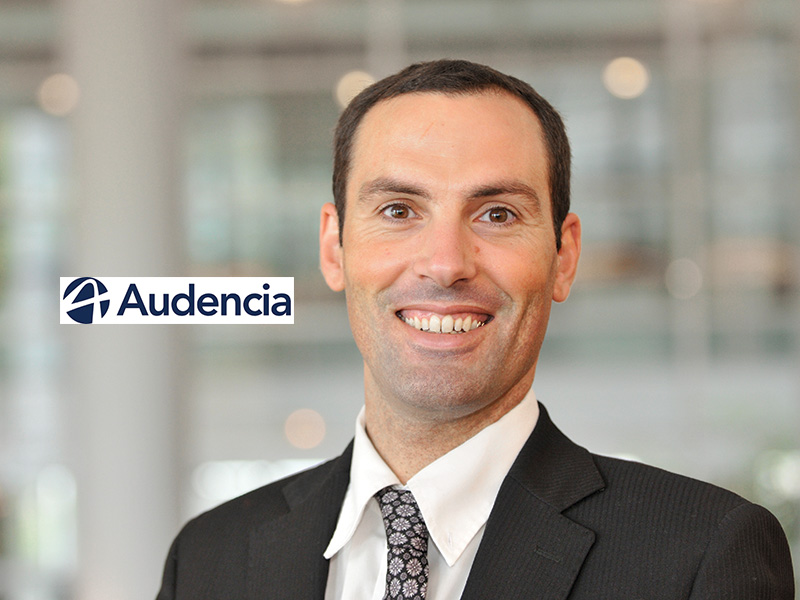
Good day to you, Mr Naulleau. Thank you so much for sharing your time with us. First, can you tell us a bit about yourself? You have a PhD in organisational behaviour studies. How does your specialisation and expertise in this field help you in leading Audencia’s MBA & DBA community?
Thanks for the invitation. In a few words, I’ve been working for Audencia for 10 years now, after a professional career in an HR Consulting firm. I’m also currently the Director of our MBA & DBA Community, which consists of 15 programmes located on three continents (Europe, Asia and Africa), with over 400 participants and more than 800 alumni. I think that my professional and academic background in management and organisational behaviour (OB) helps me in understanding what every manager experiences: facing the complexity of our contemporary world of work in a global context. The MBA & DBA Community is like a privileged field of practical implementation for OB studies.
For instance, beyond the international community of students and participants, alumni and professors we manage, I can experience what we mean by cross-cultural and remote management with different nationalities in the management team (Chinese, French, Algerian, Senegalese, Moroccan, etc.). I can feel how important it is to define a common vision to mobilise people with different views, opinions and ways of working. By being able to keep an open mind, not only do you learn about yourself, but you also learn about the power of collective intelligence! Day after day, I’m really amazed by the human richness of our team, which is at the heart of our motivation at work and the main driver for our common sense of belonging to one community. It’s what we try to nurture with our MBA & DBA Community as a multicultural and multi-generational learning experience.
Audencia’s full-time MBA programme has recently been recognised as one of the best worldwide, and ranks sixth among the best French MBA programmes. As Audencia embarks on revolutionising the higher-education landscape through its ECOS 2025, can you share with us how this will set Audencia and its programmes apart from other business schools? What is the inspiration behind ECOS 2025?
Yes, indeed, we are very proud of the recognition of our full-time MBA programme as one of the best in the world. In fact, this programme was redesigned a few years ago as a “Responsible Management” programme, particularly in line with the school’s expertise in corporate social responsibility (CSR), which was established very early on, over 10 years ago. However, at that time, the market was not entirely ready. We therefore had to rename it in a more generic way under the name “full-time MBA”. However, we did not give up on the substance by keeping the “in responsible management” DNA in the whole curriculum (which, by the way, is always mentioned by applicants wishing to join us). For example, for more than five years, in partnership with WWF, our participants have had an induction week on “Responsible and sustainable business: understanding the challenges”. The objective was to look at responsible management and the broader context of CSR from different angles, in order to understand what it involves, why it matters to companies and their business leaders, and how it can be implemented. A central aspect is to understand why businesses are increasingly held accountable for their impacts beyond the immediate economic sphere and creating shareholder value and, in addition, are expected by a range of various stakeholders to take responsibility for their wider societal and environmental influences. This issue of sustainability is not only an element that runs through all of the programme’s courses (for example, the green supply chain) but also forms the core of dedicated specialisation modules. We have even gone further by recently introducing a certificate entitled “Maximizing Global Performance” into the programme, in partnership with Boston University (United States) and Tecnológico de Monterrey (Mexico) to give our participants a global vision of these issues.
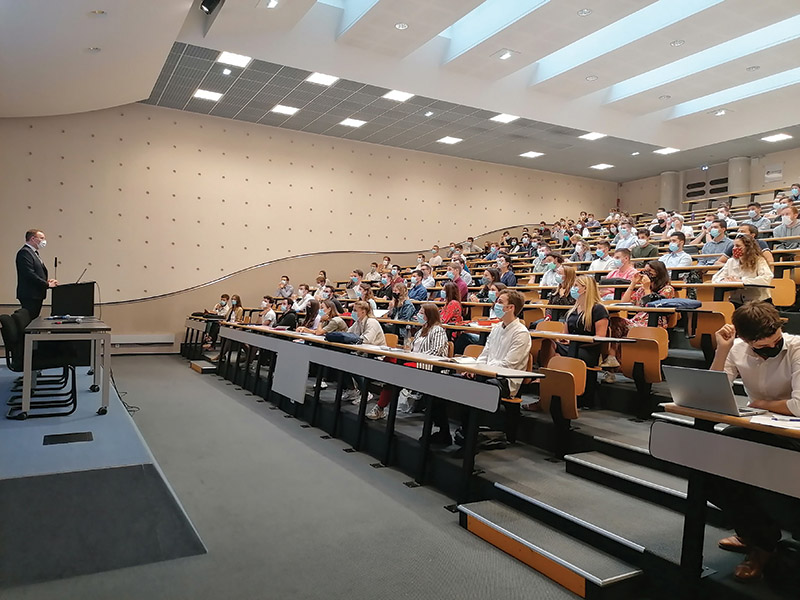
Thus, the MBA & DBA Community, in its programme philosophy and its circular mode of management involving every stakeholder (students, alumni, faculty, companies, etc.) in the entire learning process, represents only one incarnation of what Audencia is in comparison to other business schools. The ECOS 2025 strategic plan expresses the school’s ambition to go even further in its DNA, which is to contribute to accelerating the virtuous transformation of individuals, organisations and society in the face of current and future challenges. This is embodied in the deep conviction that this requires the collective intelligence of women and men united to act for the common good in the awareness of belonging to the same community of destiny on a global scale. More specifically, this leads the school to a commitment in terms of the impact on three major challenges through its activities (teaching, research, innovation, etc.): the creation and use of responsible technologies and information; the definition and adoption of managerial approaches that promote inclusive organisations and societies; and the design and implementation of sustainable business and development models. This involves, for example, reinventing performance measurement for organisations (as the Chief Value Officer MBA programme is preparing to do), but also developing an enhanced hybrid of skills for our participants (and deployed around societal, behavioural and professional skills) to enable them and their organisations to face current challenges.
Audencia is also known for offering the first worldwide Chief Value Officer Executive MBA programme. Where did the motivation to create the CVO programme come from, and what are its unique features and highlights?
The programme Director, Delphine Gibassier, has been in the field for 12 years and, very early on, she noticed that people were building standards and tools, but forgetting about the need to participate in the transformation of the human capital, the ones using those new tools. She interviewed “sustainability CFOs” in 2016 and wrote the first-ever report (published by the Institute of Management Accountants in 2018) that portrayed the change-makers of the accounting profession. CFOs and their teams have been increasingly challenged to dedicate time to sustainability, notably through the integrated reporting movement (2013) and now the TCFD standard (2017). More recently, the move by the IFRS Foundation and by EFRAG in the European Union to write sustainability reporting standards is demonstrating that sustainability is clearly now at the centre of attention of the accounting profession.
Once the province of research and development or corporate sustainability departments, sustainable management has gradually become part of the concerns of financial professionals. The increasing non-financial risks, such as climate change, and urgent pressure from not only investors but also green and ethical services and products markets, enhance financial managers’ interest in social and environmental matters. These leaders need to have new competencies, including developing natural capital profit and loss accounts, identifying the cost of key externalities, and understanding the value that their organisation creates and destroys.
Thanks to this programme, future chief value officers will be equipped with a transformative accounting model that is future-oriented and underlines the changes in business model that are necessary for the long term. Furthermore, this accounting model will be context-based and will put CVOs in the driver’s seat with a new compass: Kate Raworth’s ‘doughnut’, a visual framework for sustainable development combining the concept of planetary boundaries with the complementary concept of social boundaries. Using this compass, CVOs will understand when their business model results in negative impacts on society and/or the environment. It will equip them to make the necessary shifts towards long-term strategic value creation.
CVOs will have a more dynamic and expansive mandate than CFOs. They will connect the business model to all relevant capitals and identify key value drivers within the organisation. They will incorporate the capitals into control (planning, forecasting), risk management and wider decision-making processes. CVOs will drive the culture of business sustainability by articulating and embodying the organisation’s purpose and values. They will encourage integrated thinking by measuring and tracking performance around multi-capital value creation, and enable the corporate mindset to evolve to long-term thinking.
In your opinion, what do you think are the particular facets of the Chief Value Officer Executive MBA programme curriculum that constitute the most valuable tools for your participants? What are the challenges and gaps to be filled, given the current pandemic situation?
COVID has shown us that focusing on financial information will not be sustainable over the long term; companies cannot continue to focus only on financial capital in a world where resources are running out. Thinking around this longer term and creating value for multiple beneficiaries is challenging leaders’ thinking. In this context, finance professionals are game-changers; hence the need to redefine the role of CFOs as chief value officers. The objective of the programme is to shift how management thinks, as well as the way the finance function works – from measuring a single capital to multiple capitals.

The executive MBA programme’s unique tools are the combination of sustainability, measurement and leadership skills. We are not just integrating sustainability into accounting, we are strategising accounting for sustainability to make the numbers key to decision-making processes, to boards, and to the transitioning from today’s business models to tomorrow’s business models.
The global consultancy McKinsey & Company predicts that “2021 will be the year of transition”. What do you think good leadership should look like in the post-pandemic world? What role does a chief value officer play in leading industries through this big transition to the new reality?
Whatever the new normal looks like once nations have battled their way through the coronavirus, the recent rhetoric around green finance suggests that, both internally and externally, the value of sustainability to a business is set to grow. Financial information and financial returns as the primary measure of success are markers of the old paradigm, where short-termism plagued the mindset of the capital markets. The world is shifting to multi-capital value creation accounting, where an organisation has to take into consideration capitals such as people and the environment. In this new context, the mindset of boards will need to change, and CFOs will play a critical role in bringing the necessary shift inside organisations. Becoming a chief value officer is a real choice for the future. It will be the missing link between companies and ecological and social transition.
Future CVOs need to have new competencies, including developing natural-capital profit and loss accounts, identifying the cost of key externalities, and understanding the value created through intangibles. They will need to use a mixture of measures and indicators that are financial, non-financial and pre-financial. Consequently, tools that are currently being designed – such as new scorecards, capital expenditure tools, and internal carbon markets – are rapidly becoming multi-dimensional and include various types of metrics, which themselves need to be put into the context of external trends, business models, sectoral shifts and stakeholders’ demands. This multiplicity of formats is a challenge. All those values need to be tracked and connected, which requires a multidisciplinary mindset.
The Chief Value Officer Executive MBA programme is geared towards learning and developing the skills needed for a “multi-capital” world. Can you elaborate on what exactly a multi-capital world is? How does someone prepare for it?
Multi-capital accounting does not have a clear and precise definition today. It is multi-performance accounting; in other words, it takes into account environmental performance and social performance, which are then as important as financial performance. Generally, multi-capital accounting models aim to determine the impact on society and the environment of the financial value created or destroyed by a company.
Financial capital is no longer the only capital that companies seek to maintain and develop. The origin of so-called “multi-capital” accounting is associated with the introduction of the term “triple bottom line” by the author and entrepreneur John Elkington in 1997. In line with the three pillars of sustainable development of the 1987 Bruntland Report, he proposes to indicate the global performance of the company around three themes: the human or social (“people”), the environment (“planet”) and the economic (“profit”).
It is then a question of evaluating the value created or destroyed by the company via its activities around these three themes. It should be noted that the economic part is not limited to financial performance, but is evaluated in terms of economic contribution to society.
Finance and accounting experts hence need specific hybridised competencies between finance and sustainability in order to answer today’s challenges. Modifications to the training of financial professionals are necessary in order to prepare accountants and auditors for tomorrow’s world, so they will be able to support and lead their company in this world, too.
The coronavirus crisis poses extraordinary challenges for leaders in today’s institutions, so that achieving a resilient and sustainable business model has never been more important. In what ways does the CVO help break down silos and contribute to an organisation’s long-term value creation?
The shift towards multi-capital CFOs or CVOs is a good thing for responsible business; it gives them the data to do the right things and take good management decisions. It also builds the conversation internally and helps to inform the board concerning the risks and opportunities. The real need is for transformative accounting that does not look to the past, but tries to predict the future, and outlines changes to the business model and new types of products.
This new accounting requires communication and deep knowledge of their own organisations for CFOs, but also of stakeholders’ expectations, whether internal or external. These insights will inform analysis of business models, dependencies and impacts, risks and opportunities. The CFO’s mindset will need to shift to one of comprehensive value creation and protection. Looking at performance through a multi-capital lens will provide a 360-degree view of the organisation.
In a nutshell, the CVO positions him- or herself as a key player in the organisation, and acquires the capacity to measure and communicate the value creation process of the organisation, to understand and anticipate the financial, environmental and social implications of its decisions. In this way, the CVO becomes a change navigator by supporting the evolution of their company’s business model, thanks to an integrated and multi-capital vision.
How do you see the role of CVO fitting in and evolving in the modern business world? In what ways does the role resemble, or differ from, that of chief financial officer?
As a business partner and an expert in sustainable accounting, the chief value officer integrates all the value creation of the company with a multi-capital vision. He plays a key role in the strategic success of all organisations thinking with a long-term perspective. CVOs have a traditional accountant’s background but much more of their focus is on sustainability and the implications for finance. They no longer just have financial capital in mind; they have a 360-degree view and look through the lens of a multi-capital approach.
What will future participants in the Chief Value Officer Executive MBA programme be most interested in learning from it, in order to prepare them for this new world?
The programme aims to enhance financial specialists’ ability in measurement and communication with regard to the value creation of their company. They will develop technical as well as management skills, making them visionary experts in sustainability and change-makers. They will acquire a strategic way of thinking to become actors in multi-capital accounting, practising responsible leadership through four learning perspectives.
The first of these is being a sustainable development expert and a business partner, in order to understand and integrate planetary boundaries and sustainable development goals. Next comes acquiring a capacity for strategic thinking and looking towards the future, in order to understand and master the effects of technology on multi-capital accountancy and have an international, strategic and political vision of multi-capital accountancy methods. The third learning perspective is that of being a key contributor to business strategy, in order to value, control, report and audit strategic capital. The last is being an architect of, and a force for, change, to accompany the ecological and social transition of business models.
If there are any institutions whose business model should take into account the possibility of a pandemic, they are universities. How did Audencia adapt to the changes and prepare for the future? What opportunities do you foresee for business schools in the post-COVID world?
Audencia has always been a school on the move and attentive to changes in its environment. For example, we have been working for several years on the digitalisation of our teaching in light of the new forms of training consumption that appeared well before the COVID crisis. Because our teams were already acculturated to these new practices, but also because Audencia remains an international school on a human scale, we were able to react and adapt in real time to what the situation dictated at the time: organising all of our courses online. In my opinion, this is one of the school’s strengths; thanks to the human richness that makes up the school and a growing culture of learning organisation, we are able to respond to the agility that the new environmental conditions now require. This also allowed us to see how fundamental the human proximity of the students to the school was, even at a distance! For example, in the midst of the pandemic crisis, the increase in the number of individual meetings that the FT MBA Programme Management organised with applicants before they started their studies helped to strengthen the human link and their attachment to their future programme and to the school. This also allowed us to confirm the need to reinforce our support beyond the academic aspects of our future participants, particularly international ones, and led, for example, to the creation of the “Bee Well” support to give our students the opportunity to discuss their daily lives, well-being and health.
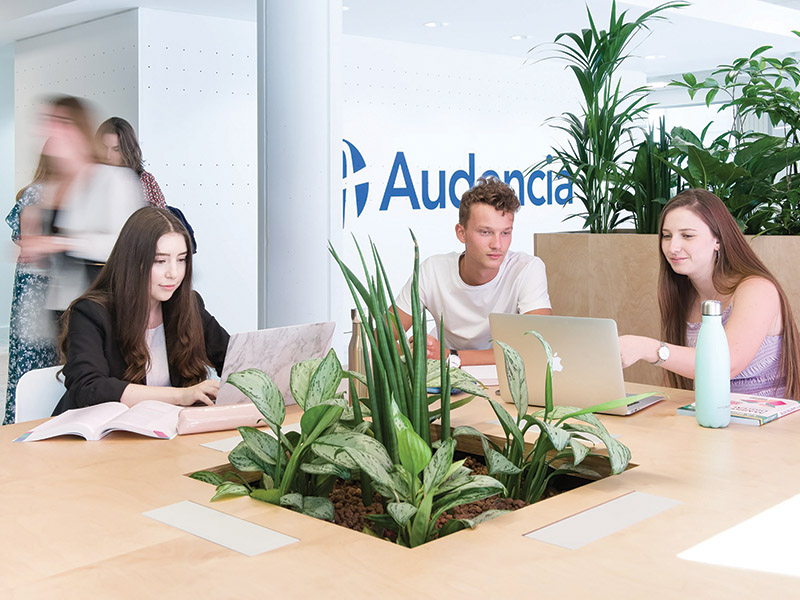
In short, the new post-COVID conditions offer a real opportunity for business schools like Audencia to reinvent themselves in their own management practices, in their teaching and pedagogy, and in the way they rethink the “student experience” on and off campus. This is exactly what Audencia wants to do within the framework of the ECOS 2025 strategic plan, with, for example, the creation of Gaïa, a new school for ecological and social transition, which will be entirely dedicated to training in positive-impact management strategies and practices for all of our initial and executive education participants. This crisis opens up a future of opportunities that represents a formidable “playground” for research to study and identify the changes in the economic and social environment. Audencia will pursue this in the future, around the three challenges it has set itself in its strategic plan.
When you consider businesses and leaders who survived the pandemic, and those who didn’t, can you see any particular differences in education between the two categories? In other words, what does a “crisis-proof” education look like?
The only certainty is uncertainty, as the COVID-19 situation reminds us. Still, I do not believe in a “crisis-proof” education but rather in an education that integrates this new norm, which is “uncertainty”. In other words, it is not really a question of adapting to crises but rather a question of adapting to the uncertainty that times of crisis remind us of. The question is, therefore, to propose a model of education that prepares individuals to face this uncertainty, that is to say, to understand it in all its complexities, to face the emotional and psychological experience that it can induce, and to know how to act with agility and discernment in an interdependent world in motion.
For a successful person like yourself, what do you think are the top qualities that leaders should have? What tips can you share for managers to lead their organisations successfully through crises and unprecedented changes?
I do believe that the managers and leaders of contemporary organisations who will succeed will be those able to open and develop a new mindset that enables them to understand the complexity of the new unstable and unpredictable environment we live in, and to interact respectfully with their ecosystem (people, planet, etc.). Again, the new reality is complex, with new and interdependent trends impacting people and organisations deeply. Misunderstanding this will lead leaders to face huge difficulties and to be unable to make appropriate decisions for themselves and organisations. And this also requires them to be themselves in a genuine and sensitive way, in order to provide meaning at work for people who consider that “work” has a new status in their lives. The managerial equation is not so easy to find in that changing environment.
This article was originally published on 11 July 2021.
Executive profile

After working for 10 years as HR manager in a consulting company, Mickaël Naulleau joined Audencia as Professor in Management and HRM. Today, he is also the director of the MBA & DBA Community at Audencia which consists of 15 programmes located on 3 continents (Europe, Asia and Africa).




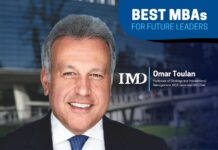
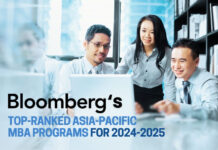


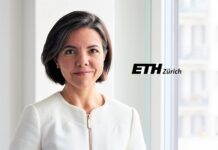




















![“Does Everyone Hear Me OK?”: How to Lead Virtual Teams Effectively iStock-1438575049 (1) [Converted]](https://www.europeanbusinessreview.com/wp-content/uploads/2024/11/iStock-1438575049-1-Converted-100x70.jpg)




